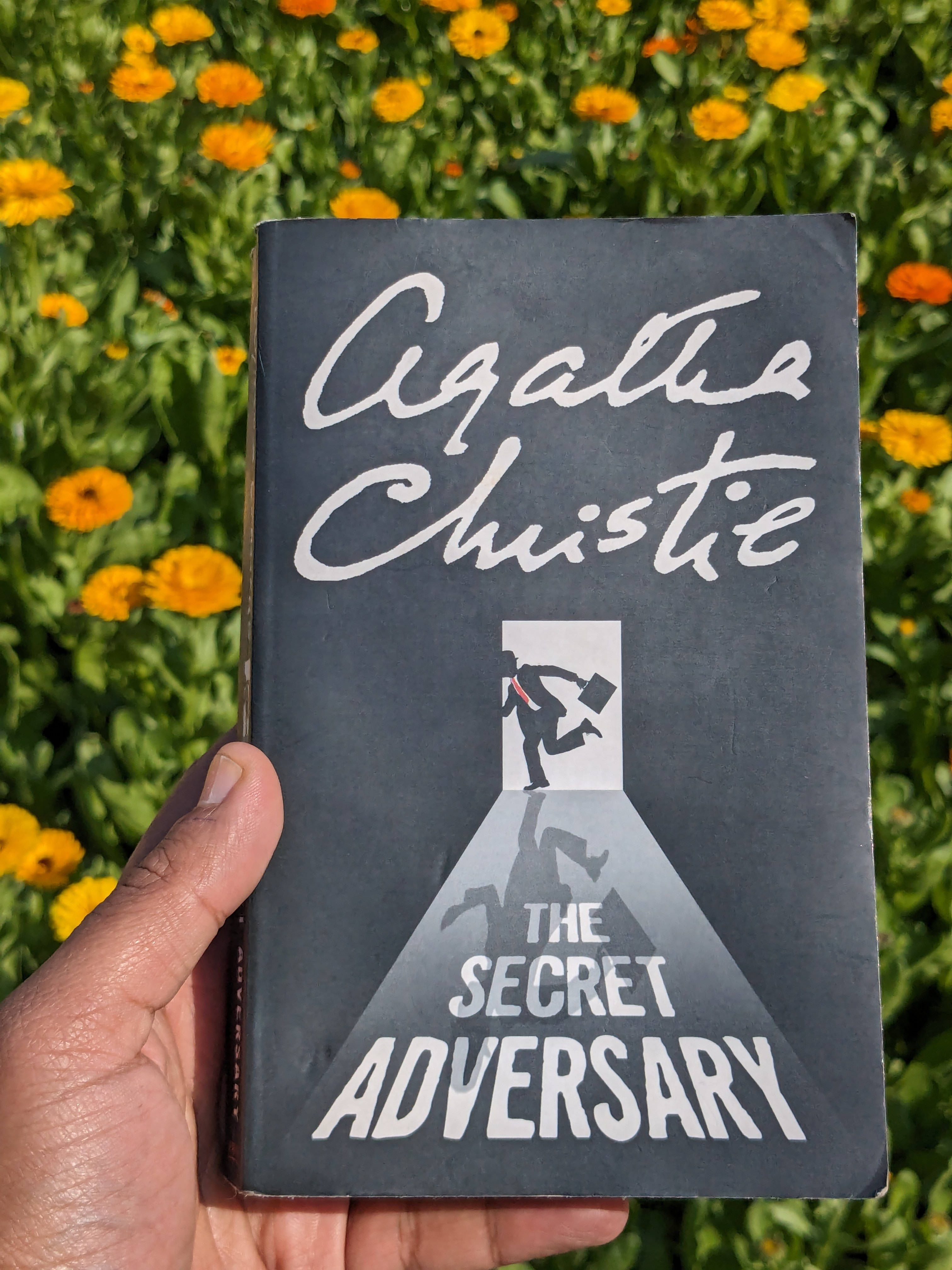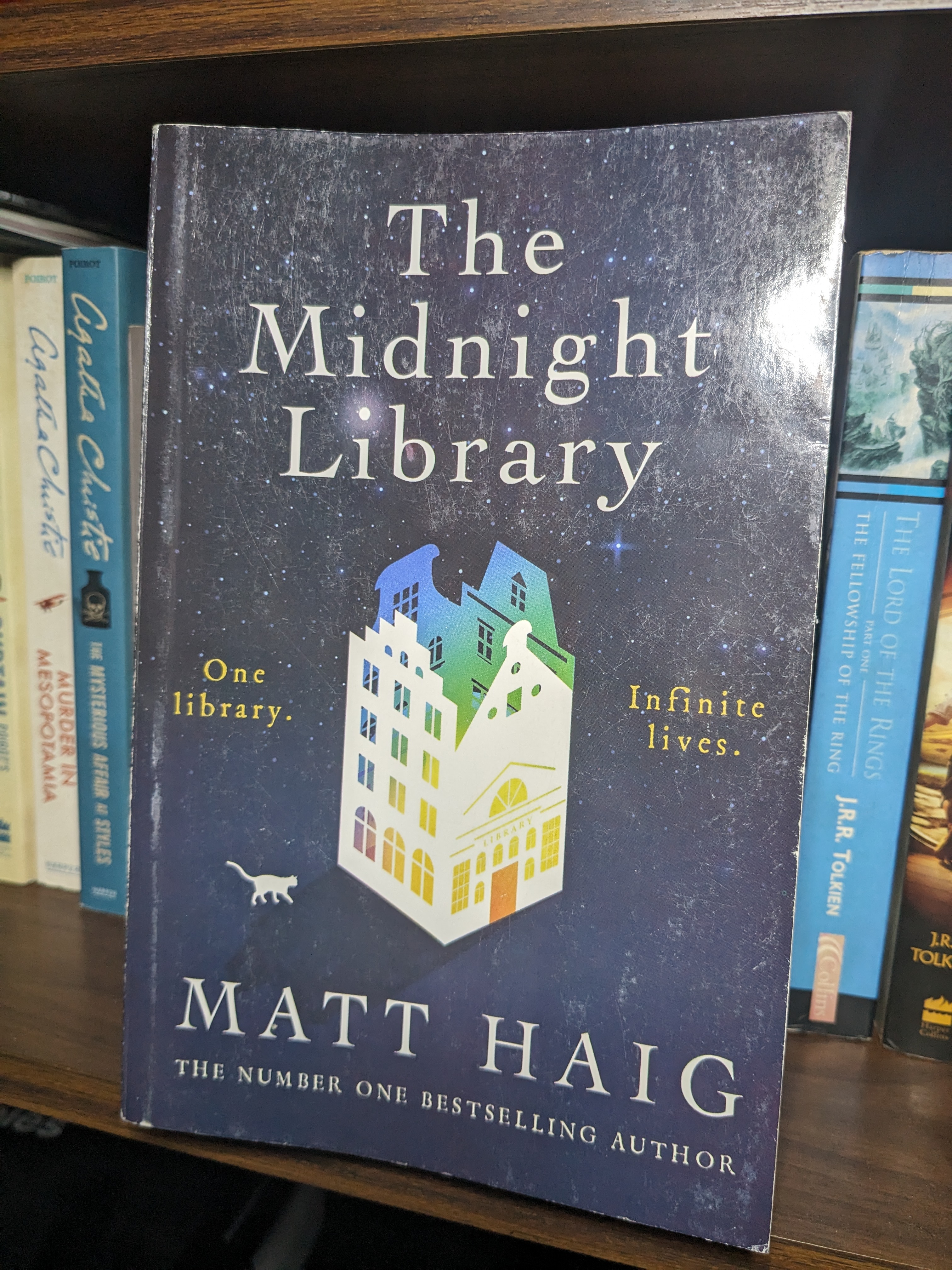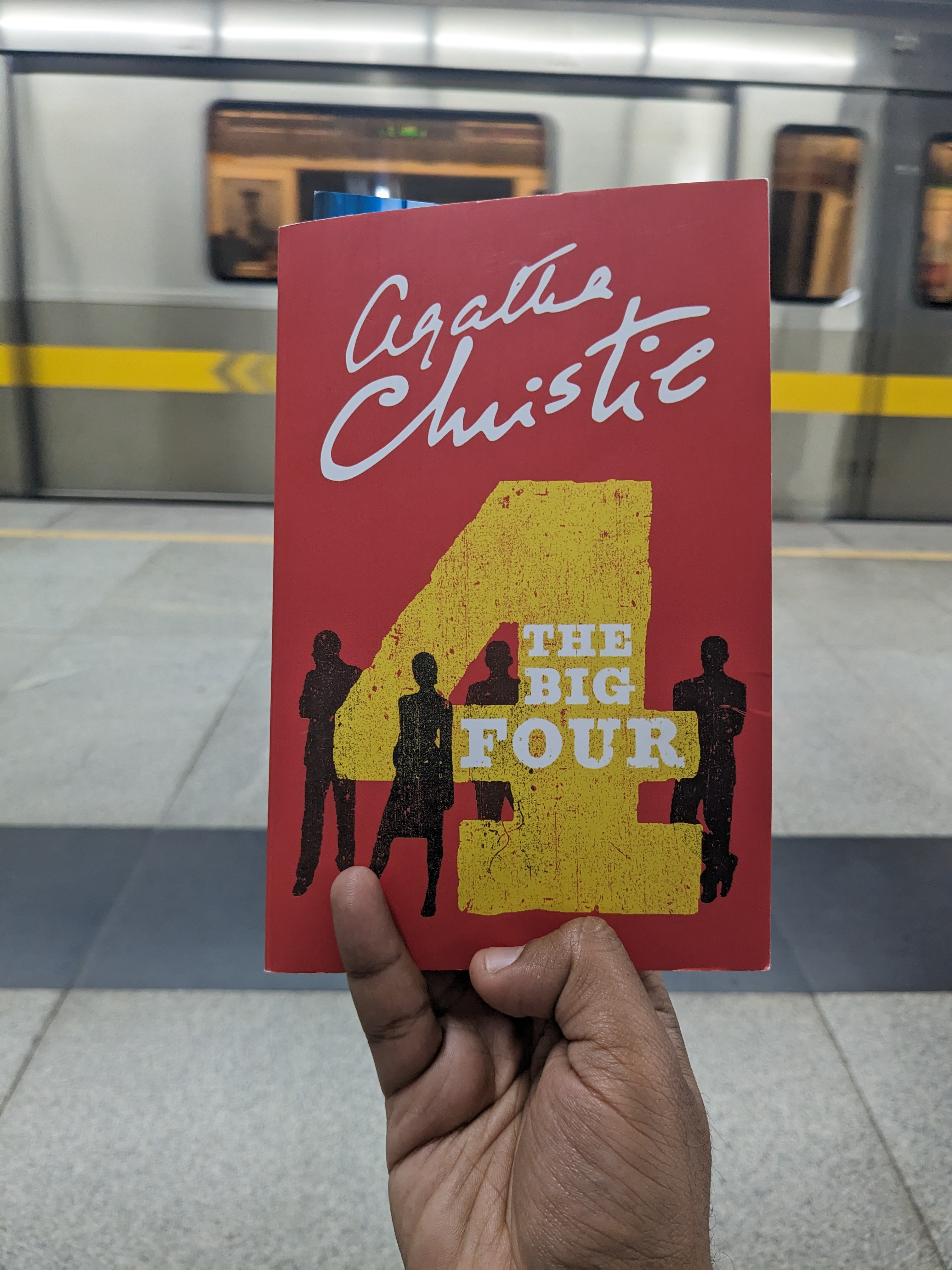Book Reviews for February, 24
The year of reading continues as we move into 2024. I spent most of my last year reading Agatha Christie's Poirot series. And it was a great decision as it not only helped me continue with my reading hobby, but also gave me a challenge to look forward to with #readchristie23. This year I have decided to continue the challenge, but the plan is to mix up other books that have been lying on my bookshelf waiting to be read.
The first book I picked up in February 2024 was Agatha Christie's Secret Adversary. This year the folks at agathachristie.com decided to divide the months by decades. Where the first quarter of the year is dedicated to the 20s. I skipped the January book(The Mysterious affair at styles) as I had already read it last year. See books for more details.
The Secret Adversary

The Secret Adversary is Christie's second book, and it is different from all other books that I had previously read from her. Almost all her work is in the detective fiction genre where she has surpassed everyone else in the world. This novel is more of a thriller than a detective fiction. The lack of murder or even a moustached detective does not mean that this novel is any less entertaining or gripping. The secret Adversary follows the duo of Tommy and Tuppence as the unemployed, rich of energy and full of vigour T & T tackle the world of espionage, secret identities and a man behind a mask only known as Mr. Brown who secretly controls everything in an underground secret society. Surprisingly funny and entertaining, this novel was a quick read once I went past the first 20 pages. The twist is actually very well written, infact too well. had workedhad worked
The usual christie twist done right always overwhelms you and surprises you. But then when you go back and think of all the signs that were present which were pointing to the killer/villain and you just missed them you realise how masterfully she crafted it. Murder of Roger Ackroyd will always be the best example of this. But rereading Secret Adversary, I am sure would not give me any indication to the twist and that is why it was not as enjoyable and satisfying for me.
The Midnight Library
“The only way to learn is to live.”

The second book I read in February was a very popular one among the popular fiction reader. The Midnight Library apparently a NYT bestseller was everywhere a few years ago. I had bought this last year and I never got around to reading it. Matt Haig's novel is about regrets. For all the moviebuffs reading, think of the last few minutes of La La Land, when Mia walks into the Seb's and looks at Sebastian and the beautiful montage begins. They share a glance as Damien Chazelle re-imagines and lets viewer watch agonizingly what could have been. But it didn't. The Midnight Library is about those lives that you could have lived if things had worked out differently. The Midnight Library is that feeling multiplied by 100.
In the novel you follow Nora Seed, a woman who is struggling to survive, she has lost her job, her cat has just died, she believes she need not exist in the world. That her existence adds nothing to the ongoings around her. She decides to die. And she wakes up in a library where time has stopped. It is always midnight here and each book in the library is one of the lives that she could have lived if she had made some decision differently. A librarian is there to guide her.
The novel is really easy to read. The text flows well and the characters are interesting. There were moments though when the book slowly takes shape of a disguised self-help book and sounded a bit too preachy. Nora seems to excel at everything. In one of the lives she live she has to speak at a public platform and she aces it even though in her original life she had never done any such thing. When its needed Nora turns to be very smart and articulate and during other moments Nora has no character depth. Her choices do not make sense. She is a clueless woman. And that frustrated me reading this book. I really wanted to like this book. And I did. I just didn't love it to say it deserves a 5 star review (say).
Philosophically though, this book deals and explores ideas that are very profound. As a discussion of Suicide the book had to approach this subject very gently and the writer is successful in managing that. The book is not just about regrets of things that you could have done. But it tells the reader to celebrate the lives that you touched and changed. No matter the size of the regrets that you have, it is important to live fully and to rejoice. That is I believe an important message that the book was successful in instilling in the reader. The book starts in the middle in an awkward direction with discussion of quantum mechanics and then uses the everett's many world hypothesis for an explanation of what the midnight library is. This was a bit jarring for me as a physicist not because it was used in a wrong way, but because it was forgotten after being discussed once. Was it necessary to have that? it also introduces another character that is "jumping" like Nora and uses his character to show how she can be lost in living out the lives she couldn't and not accept her present life and the good things she did achieve in that life. I think this book would work well as a short limited series on HBO and the episodic nature of the stories will render it to be a good show. A show I would definitely watch.
The Big Four

The third book of the month was The Big Four, another spy thriller from Agatha Christie. Although Big Four has her famous belgian moustached detective, Hercule Poirot, the novel follows a different structure than other Poirot works.The Big Four is structured as different chapters, each chapter serving as a different story, but involving same characters. Big Four involves a secret group. A group of four individuals who are so powerful that they dictate the runnings of the world. They are the ones deciding on things in the background while the world things it is the political leaders who make the decision. The Four includes a chinese mastermind as Number 1, a rich american as Number 2, a French woman as number 3 and finally the Number 4, the destroyer. He is a master of changing his appearance, he can blend into any environment and can be anyone anywhere. So begin the story of Hercule Poirot and his trusted friend and partner Arthur Hastings in a story that spans across years through each chapter being a short story more or less. Inspector Japp also returns much like Hastings from Christie's first novel, The Mysterious affair at styles.
The Big Four is relentlessly thrilling, although the style can be jarring and some of the decisions made by our narrator/protagonist, Mr. Hastings may very well be silly and predictive. The story still holds intrigue. Especially for Indians, who grew up watching old classic bollywood thrillers, the pace of the novel reminded me a lot of of the pace of those movies. How in minutes the story would progress years and yet engrossed the audience. Not to mention so many action tropes that have been overused in bollywood happens in Big Four, from the villains using hero's wiwfe as damsel in distress to make the hero of our story go against his friend and do something he would never have done to an almost use of twin trope that we have seen a million times. Agatha christi's style has not furnished yet in The Big Four.